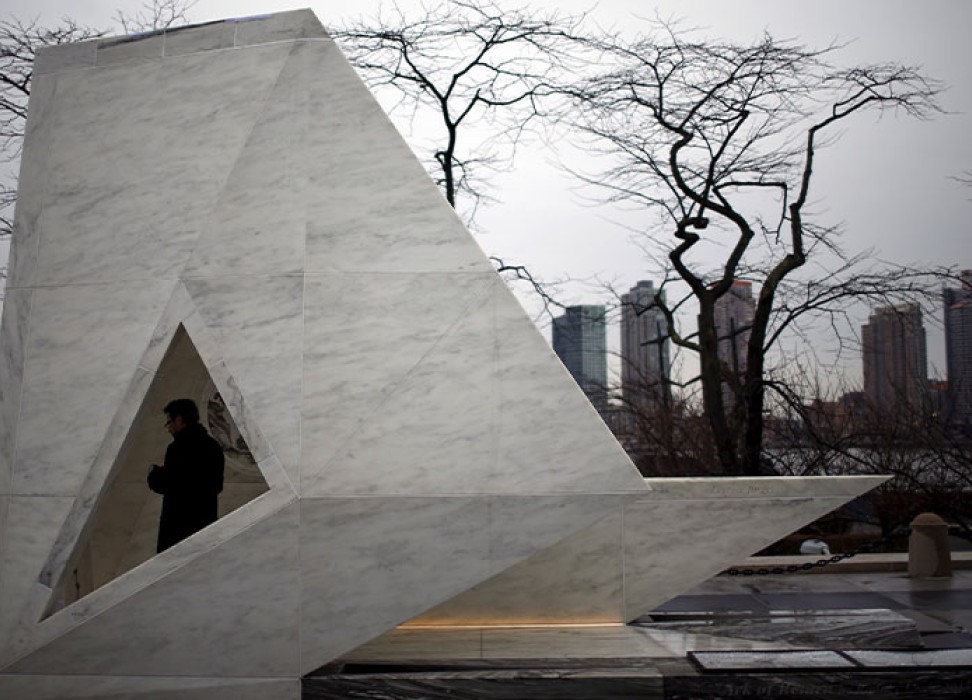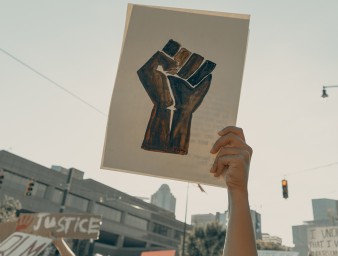High Commissioner: Acknowledging and confronting historical legacies crucial for racial justice
16 July 2021

A recent report on systemic racism by UN Human Rights Chief, Michelle Bachelet, highlights that, for decades, people of African descent have called for accountability and redress for harms suffered due to enslavement, the transatlantic trade in enslaved Africans, colonialism and successive racially discriminatory policies and systems. Yet, the report further indicates, no State has comprehensively accounted for the past and current impacts of systemic racism by adopting a range of measures to address the contemporary legacies of enslavement, the transatlantic trade in enslaved Africans and colonialism. The report puts forward a Four Point Agenda towards transformative change for racial justice and equality, which recommends measures to confront past legacies.
The Slave Route Project by the UN Education, Scientific and Cultural Organization (UNESCO), estimates that between 25 to 30 million people were violently uprooted from Africa for enslavement.
Today, there are around 200 million people identifying themselves as being of African descent in the Americas, and many millions more live in other parts of the world, outside the African continent. They are acknowledged in the Durban Declaration and Programme of Action as a specific group that continues to suffer racial discrimination as one of the historic legacies of slavery, the slave trade and colonialism.
Links between the past and contemporary manifestations of racial discrimination
Bachelet’s report further highlights that behind today’s systemic racism, racial violence, dehumanisation and exclusion, lies the lack of formal acknowledgement of the responsibilities of States, institutions, religious groups, universities, businesses and individuals that have engaged in or profited from - and continue to profit from - the legacies of enslavement, the transatlantic trade in enslaved Africans and colonialism.
Citing a 2019 report by the UN Special Rapporteur on contemporary forms of racism, Tendayi Achiume, to the UN General Assembly, Verene Shepherd, member of the UN Committee on the Elimination of Racial Discrimination (CERD), said “many of the contemporary manifestations of racial discrimination must be understood as a continuation of insufficient remediated historical forms and structures of racial injustice and inequality.”
Shepherd was one of the many experts consulted in the preparation of Bachelet’s report. She added that the legacies of the past enslavement of Africans can be witnessed in the unequal access by people of African descent to quality education, adequate housing and decent employment, as well as in racial profiling, in anti-Black hate speech, police violence and, in our times of COVID-19 pandemic, in unequal access to vaccines and healthcare.
Shepherd said States should “apologise for the historical crime against humanity,” then admit that the legacies of the past still affect people of African descent today.
“Too many times we hear that the socioeconomic conditions of people of African descent are due to a lack of ambition and the failure to pull ourselves up by our own bootstraps. But sometimes there are no straps, far less boots,” she said. “So it is important for those who are complicit in the conditions we face today to own up to the past and to implement strategies suggested in the Programme of Activities for the International Decade for People of African descent, especially, in the areas of health and in the area of education.”
Reckoning with the past
A reckoning with the past is also an avenue suggested by Bryan Stevenson, Director of the Equal Justice Initiative and Professor at New York University School of Law. He created the National Memorial for Peace and Justice in Montgomery, Alabama, United States, to commemorate victims of “racial terror lynchings”.
Stevenson said that memorialization was a crucial part of the process of creating “remedies for communities that have been damaged by histories of human rights violations.”
“Talking honestly about our past is a pathway to repair, to recollection. We know from psychology that for trauma survivors and for abuse victims, if you are silent about the thing that traumatized you, if you are silent about the abuse, the problem does not go away. It oftentimes gets worse and it manifests itself in ways that are very unhealthy,” he said. “Truth telling is not only cathartic, it can be healing. It can be important for how we move forward.”
Bachelet’s report points to local, national and regional initiatives in a number of States that have begun to undertake truth-seeking and limited forms of reparations, including in reviewing statues in public spaces.
In the United States, for example, some local and state level programmes are being established to seek to provide some reparations including for wealth and opportunity gaps. In 2020, Belgium established a Parliamentary Commission to look into its colonial past in the Democratic Republic of Congo, Burundi and Rwanda. The European Parliament declared ‘slavery’ a crime against humanity.
Argentina launched a National Commission for the Historical Recognition of the Afro-Argentine Community, seeking the historical reparation of people of African descent in Argentina through the recovery of sites that have special meaning for this community.
In Colombia, the Truth and Reconciliation Commission held truth-telling dialogues in 2020 on the impact of the armed conflict on people of African descent, providing some acknowledgement by individuals of the harms that they had caused. In 2019, France established a foundation to create a museum and memorials for its role in the trade in enslaved Africans.
In the Caribbean, the Caribbean Community (CARICOM) Reparations Commission developed a ten-point reparation plan outlining “the path to reconciliation, truth, and justice for victims and their descendants.”
Confronting historical legacies
For the UN Human Rights Chief, it is time to overcome hurdles to accountability and redress for past wrongs. In her report, Bachelet suggests using solutions embedded in “political leadership, creative responses, empowerment measures and honest dialogue” about the impact of legacies of the past on contemporary forms of racism.
This should entail ensuring the effective participation of people and communities of African descent in the design and implementation of processes, including to seek the truth, define the harm, pursue justice and reparations and contribute to non-recurrence and reconciliation.
The report states that individual measures are not enough – what is required is a plurality of measures in recognition of the magnitude and seriousness of the violations, the collective suffering and inter-generational transmission thereof, and the need to work together in solidarity towards restoring the dignity of people of African descent.
The report further stresses the importance of addressing the past to transform the future, through reparative justice grounded in international human rights law.
“Reparations should not only be equated with financial compensation. They also comprise measures aimed atrestitution, rehabilitation, satisfaction and guarantees of non-repetition, including, for example, formal apologies, memorialisation, institutional and educational reforms,” the report states. “Reparations are essential to transforming relationships of discrimination and inequity, mutually committing to and investing in a stronger, more resilient future of dignity, equality and non-discrimination for all.”
16 July 2021
This story is the third in a four-part series presenting UN High Commissioner Bachelet’s Agenda towards transformative change for racial justice and equality. Each part highlights the historic specificities, the lived experience and current realities of people of African descent in several States.



